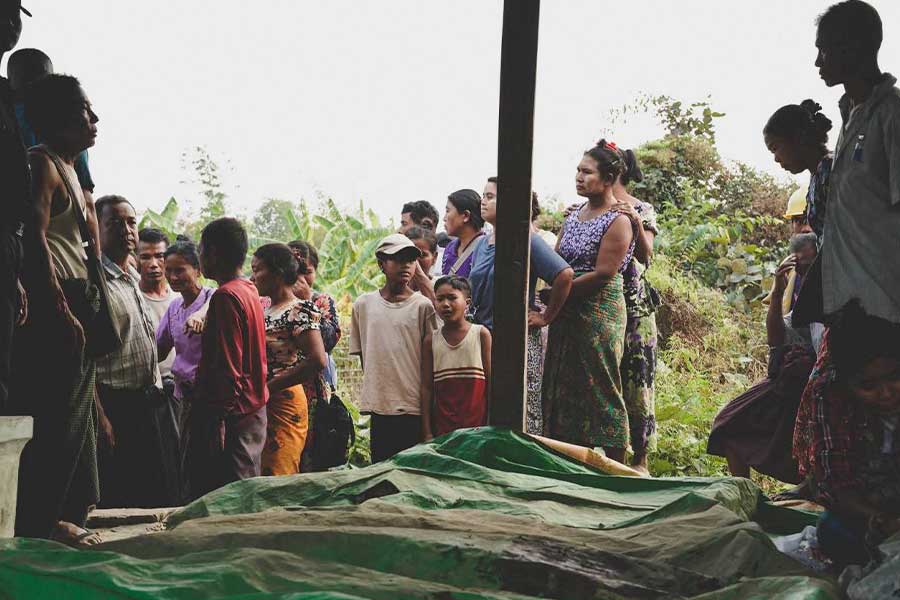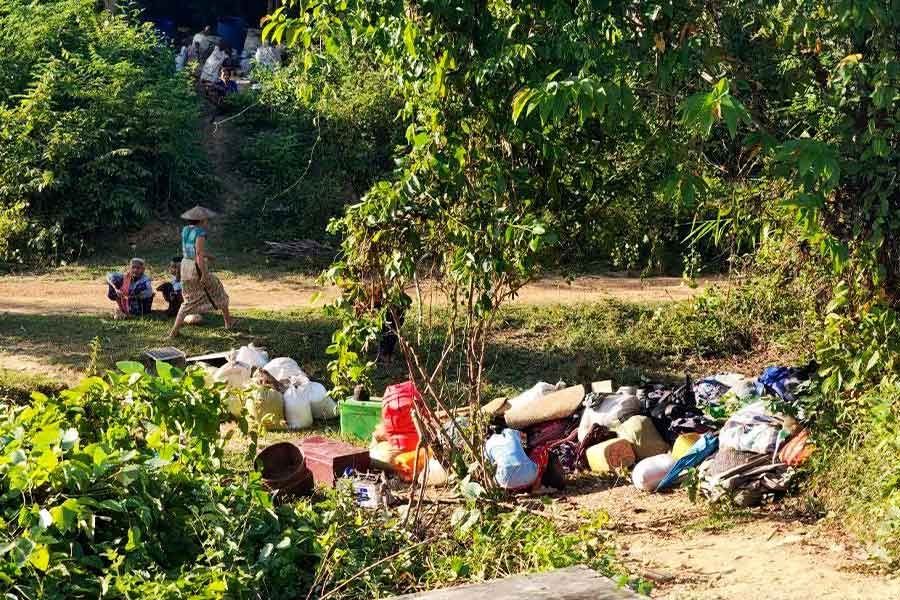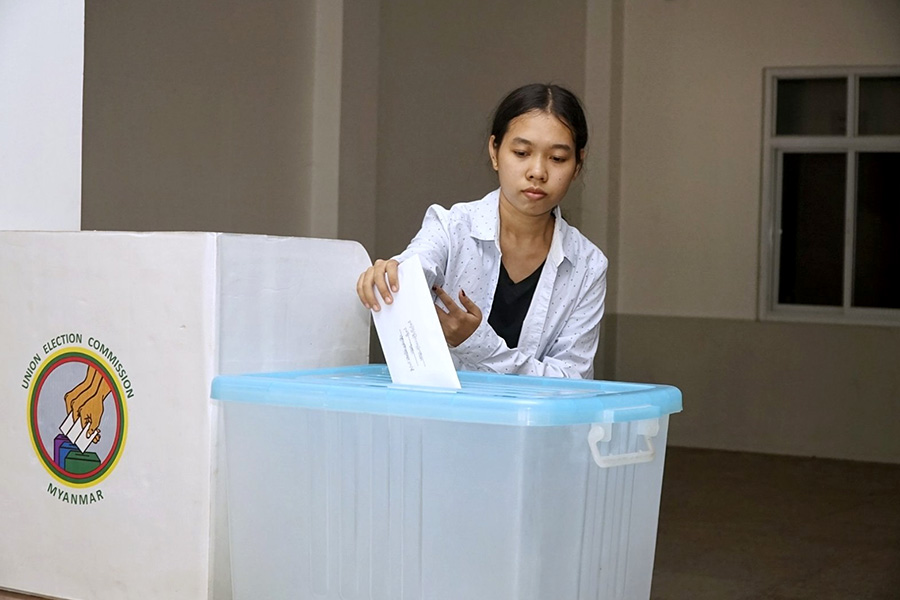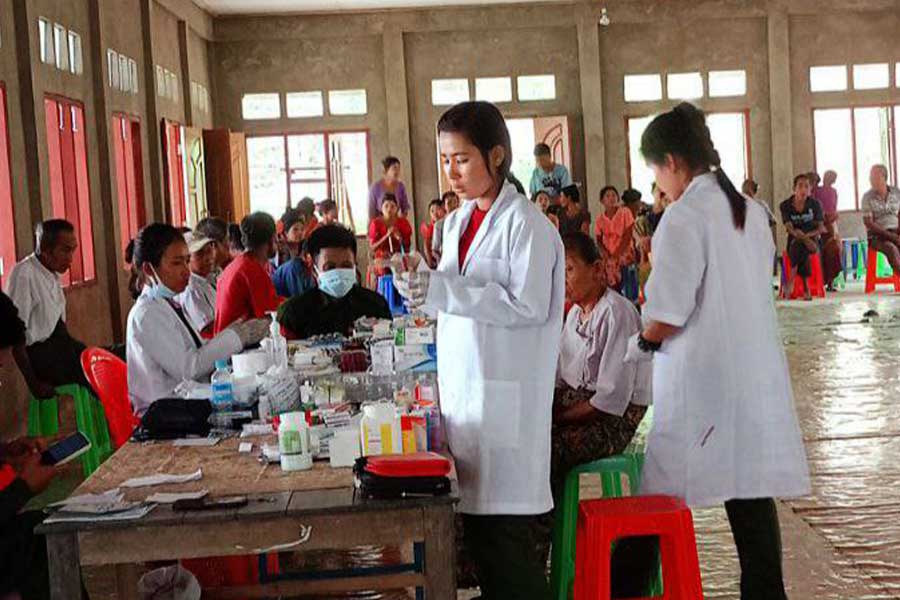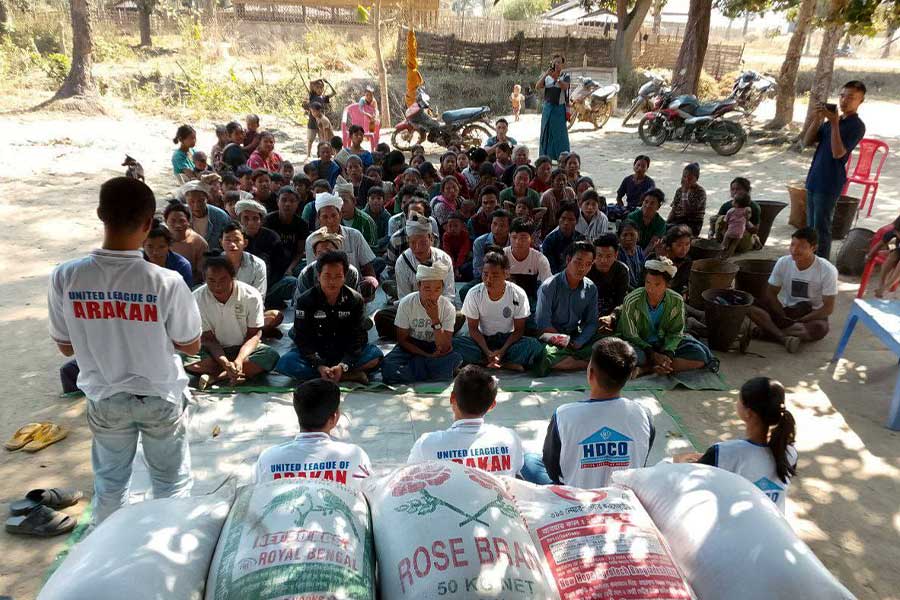- 15 mass casualty incidents from regime airstrikes reported in Arakan State since 2023
- Kyaukphyu IDPs forced to flee again amid junta airstrikes and artillery attacks
- New Diplomatic Movements Between Bangladesh’s New Government and the Arakan Public Administration
- Junta claims over 24 million ballots cast in 2025 poll, cites strong youth turnout
- ULA expands HIV prevention, healthcare services for sex workers in AA-held areas
In Arakan, IDP women do manual jobs to feed their families
Displaced women also do other odd jobs like washing clothes, fetching water and cleaning houses for wages, just to survive and feed their children.
23 Oct 2024
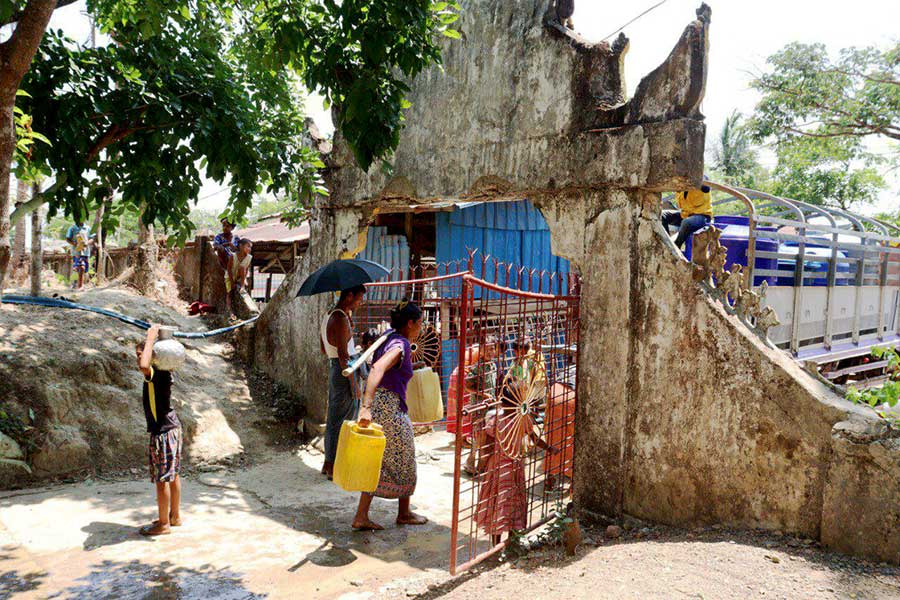
DMG Newsroom
23 October 2024, Sittwe
Residents displaced by the fighting in Arakan State are suffering from serious livelihood hardships due to scarcity of jobs, massive inflation and lack of support.
Many internally displaced people (IDPs) have been forced to do whatever manual jobs are available. More and more displaced women have chosen to work as lumpers or dockers, backbreaking jobs traditionally reserved for men.
"I have never done this before. I get paid 1,000 kyats to carry a bag of sugar. My heart is not good. But I have to bite the bullet as it is the only thing that I can do to save my children from starving," said Daw May Thein, 50, who is taking refuge in Kyauktaw Township.
Displaced women also do other odd jobs like washing clothes, fetching water and cleaning houses for wages, just to survive and feed their children.
Ma Thandar, a 20-year-old displaced woman, said doing odd jobs means they depend solely on daily wages, which they don't earn when there is no job for them to do.
"Typically, women only do household chores, but these days, women work as dockers shoulder to shoulder with men. The wage varies between 2,500 kyats and 25,000 kyats a day, depending on the workload. But we don't have a job most days," she said.
Displaced women said they are going hungry despite doing manual jobs, as food prices continue to soar.
"We don't have a regular income. On some days, we only earn less than 2,000 kyats. How can we feed our children while food prices are this high? My income can't meet expenditures. I haven't received any assistance from donors since arriving here," said a displaced woman.
IDPs have called on donor organisations to provide relief supplies as many are facing starvation.
Fighting has been raging in Arakan State for nearly a year, displacing almost 600,000 people who are struggling to make ends meet amid serious shortages and price hikes.




